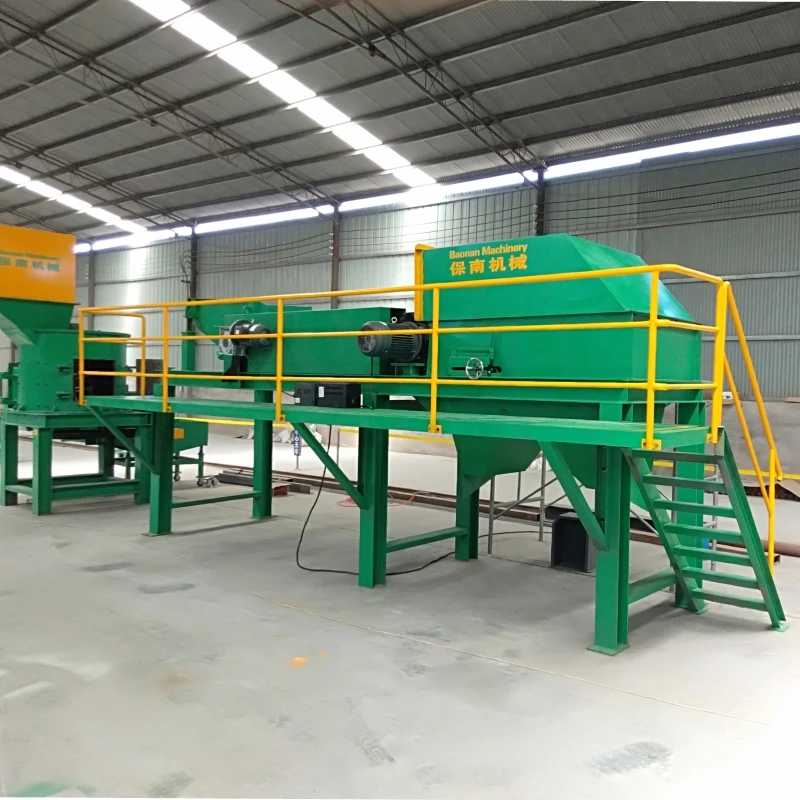

11월 . 05, 2024 18:35 Back to list
The World's Largest Metal Shredder A Giant Leap in Recycling Technology
In an age where sustainability and eco-friendly practices are gaining widespread attention, the need for effective waste management solutions has never been greater. Among these solutions, the role of metal shredders cannot be overstated. The world's largest metal shredder represents a significant technological advancement in recycling, transforming how we manage scrap metal and contribute to a circular economy.
Understanding Metal Shredding
Metal shredding is a crucial process in the recycling industry, involving the reduction of metal scrap into smaller, more manageable sizes. This process enables easier transportation, storage, and ultimately, recycling of metal materials. Metal shredders work by using a series of rotating blades and hoppers to crush and shred various types of metal, including steel, aluminum, and copper. The output is a mix of shredded metal, which can then be further processed and used as raw materials in manufacturing new products.
The Giant of Shredding
The title of the world's largest metal shredder belongs to the facilities operated by companies like Schnitzer Steel Industries and Sims Metal Management, among others. These industrial giants have developed shredders capable of processing hundreds of tons of metal per hour. An example is the enormous shredder located in Oregon, which can shred up to 400 tons of metal every hour. This impressive capacity not only illustrates the sheer size of the operation but also its efficiency in processing large volumes of scrap metal.
Technological Innovations
The world's largest metal shredders are equipped with cutting-edge technology that enhances their performance and productivity. For instance, advanced magnetic separation systems are integrated into the shredding process, enabling the separation of ferrous and non-ferrous metals quickly. This technology ensures that materials are sorted accurately, maximizing the quality of the recycled output.

Moreover, modern shredders often come with automated controls that optimize the shredding process. These systems can monitor load levels, adjust speed, and manage the flow of materials, which not only improves efficiency but also reduces energy consumption. As a result, these shredders not only help in recycling metals but also in minimizing the carbon footprint of metal processing.
Environmental Impact
The environmental implications of operating the world’s largest metal shredder are profound. Recycling metal significantly reduces the need for mining and extracting new materials, conserving energy, reducing greenhouse gas emissions, and minimizing ecological disruption. According to studies, recycling aluminum saves up to 95% of the energy required to produce it from raw materials. When you scale this up to the level of giant shredders, the potential impact on resource conservation and energy savings is immense.
Additionally, shredding and recycling metal helps divert millions of tons of waste from landfills, contributing to a more sustainable waste management system. This aligns with global efforts towards circular economies, where materials are reused and recycled to the fullest extent, decreasing reliance on virgin materials.
Economic Benefits
Aside from the environmental advantages, the world's largest metal shredders contribute significantly to the economy. They create jobs in the recycling and manufacturing sectors, provide a stable supply of recycled metals for industries, and support businesses aimed at sustainable practices. The metal recycling industry alone is worth billions of dollars, and facilities that utilize such shredders play a vital role in maintaining this economic engine.
Conclusion
As we continue to navigate the challenges of waste management and resource conservation, the world's largest metal shredders stand as a testament to innovation in recycling technology. Their capacity to efficiently process massive amounts of scrap metal not only supports the recycling industry but also promotes environmental sustainability. Investing in such advanced technologies is crucial for creating a circular economy capable of meeting the needs of future generations. The impressive functionality of these shredders marks a significant leap forward, paving the way for a greener and more sustainable world.
Latest news
Troubleshooting Common Eddy Separator Problems
NewsJul.04,2025
The Role of Metal Recycling Plants in Circular Economy
NewsJul.04,2025
The Impact of Recycling Line Pickers on Waste Management Costs
NewsJul.04,2025
Safety Features Every Metal Shredder Should Have
NewsJul.04,2025
How Industrial Shredders Improve Waste Management Systems
NewsJul.04,2025
How Cable Granulators Contribute to Sustainable Recycling
NewsJul.04,2025